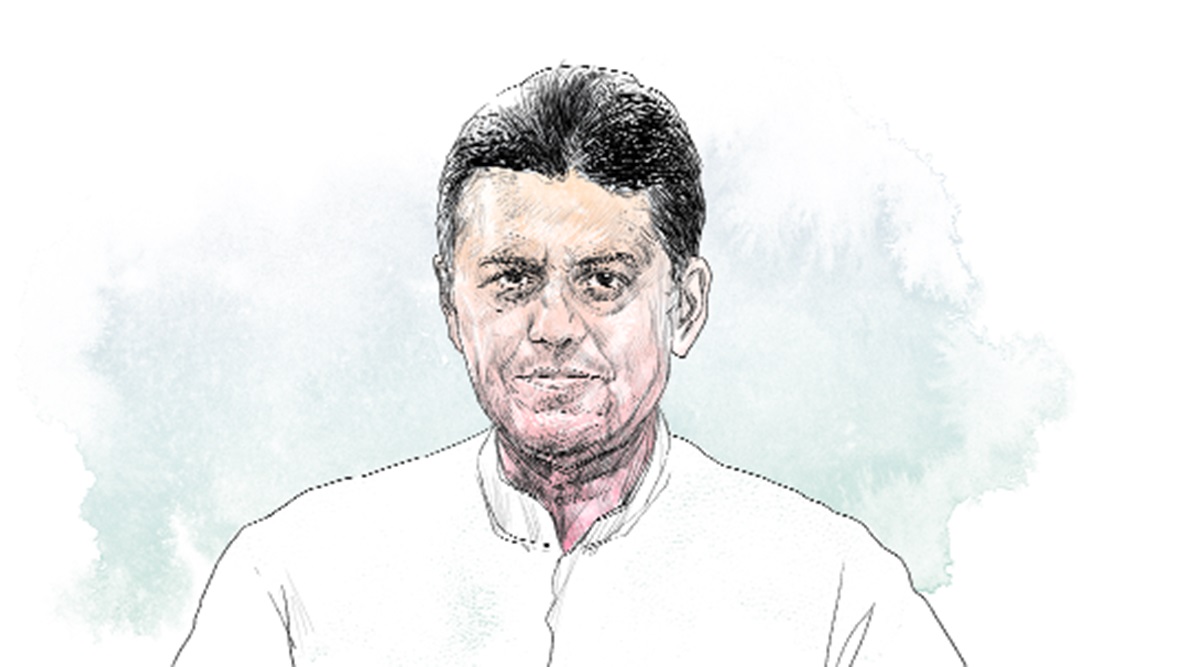 Senior Congress leader Manish Tewari.
Senior Congress leader Manish Tewari. The Joint Parliamentary Committee on the Personal Data Protection Bill, formed in 2019, tabled its report on Thursday, along with seven dissent notes signed by eight Opposition members. Manish Tewari, a member of the committee, has also authored a detailed dissent note on the issues he has with the Bill in its current form. He explains these in an interview with Krishn Kaushik. Excerpts:
Do you agree with the final report of the committee?
No, I do not. In fact, if you read my dissent, which is the most exhaustive dissent note which has been tabled, (it) rejects the bill in its entirety. For the simple reason that there is an inherent design flaw in the Bill. It has been conceived with a pre-Puttaswamy (the Supreme Court verdict declaring privacy a fundamental right) mindset. It cleaves the personal data universe into two halves. The Bill will be imposed with all its rigour in the private space while the government space is riddled with exemptions, break-out clauses and escape clauses.
Therefore, when privacy has been held to be a fundamental right, my limited understanding having now practiced law for over three decades, is that a fundamental right is principally imposable against the state.
This Bill is quite an oxymoron. It exempts the government completely and it seeks to enforce all the provisions of the bill qua the private space.
This Bill, unfortunately, makes a distinction between physical data and digital data. Which is an erroneous distinction, because this is a personal data protection bill. For example, even today, most of the medical records across hospitals, which will qualify as critical personal data, are in physical format. Most are handwritten by doctors. If the bill exempts non-digital data, how does it protect the privacy of the person?
What were the main points of disagreement?
Essentially, a major point of departure was Clause 35, which provides for blanket exemption from the rigours of the data protection act to the government.
The second point of inflection was Clause 11. Every function of the state is authorized by some law or the other. Essentially it means it exempts the entire government space from the application of this act.
The third point of departure was, I have been arguing for a far more robust architecture with regard to the social media intermediaries, who find a casual mention in the personal data protection law.
My repeated assertions to the committee were that you cannot have a situation whereby anonymity masquerades as privacy, and bots, trolls and perverts actually rule the digital media space. Therefore, it was my contention that each and every account in the digital universe, or in the cyber civilisation should be an identified account. Whereby tomorrow, if somebody is a purveyor of hate speech, or defamatory or slanderous content, he or she can be identified and prosecuted according to the law.
This Bill will absolutely kill the start-up ecosystem in the country, because the penalties which have been prescribed are so onerous that anybody or any entrepreneur, who reads the Bill will not venture within one mile of a start-up.
On what points was there unanimity within the committee?
Essentially, the unanimity was that you require a personal data protection law. That was the minimum incentive which was there. As far as the approach to the data protection law is concerned, I think fundamentally the Bill which was tabled in the Parliament and was referred to the committee, was actually conceived and conceptualised by people who have either no understanding or a very limited understanding of the digital universe.
Do you believe the Bill that they have come up with is robust?
Absolutely not. My sense is that given the fact that there is a design flaw, which I pointed out earlier, I don’t think that this Bill will stand the test of constitutionality. Especially, given the fact that the Right to Privacy has been held to be a fundamental right, in terms of Article 21.
I think this Bill falls foul of those fundamental protections, which have been read into law by the 9-0 verdict of the Supreme Court.
What will be your next step, because you are not convinced with the bill?
The government has a brute majority on the floor of the House. Therefore, they will railroad it through. They had a majority in the committee also. That’s why legitimate objections by a large number of Opposition members were discussed but finally not accepted. I think at some point in time, when the constitutionality of this Bill gets challenged, I would love to don my lawyer’s hat, since I have rejected the Bill in its entirety.
- The Indian Express website has been rated GREEN for its credibility and trustworthiness by Newsguard, a global service that rates news sources for their journalistic standards.

